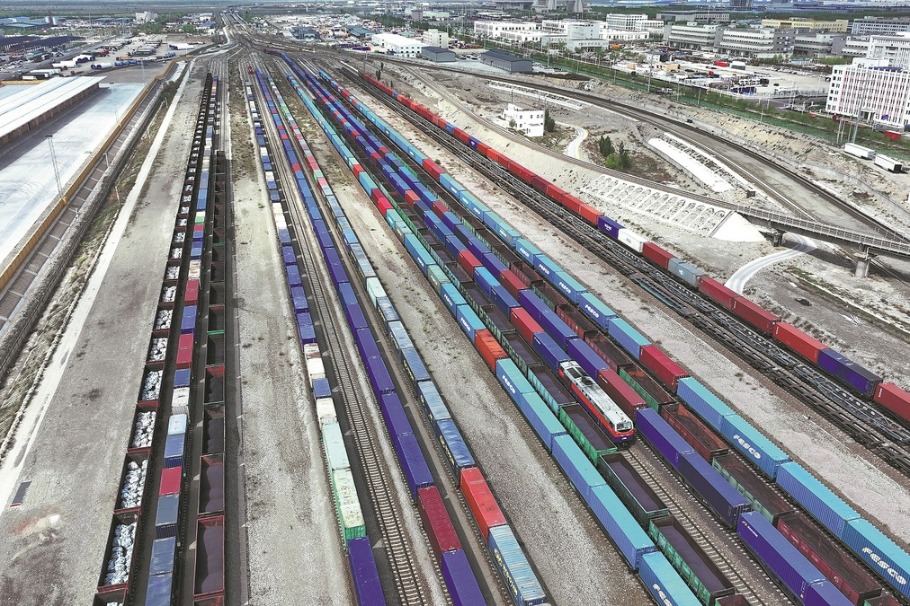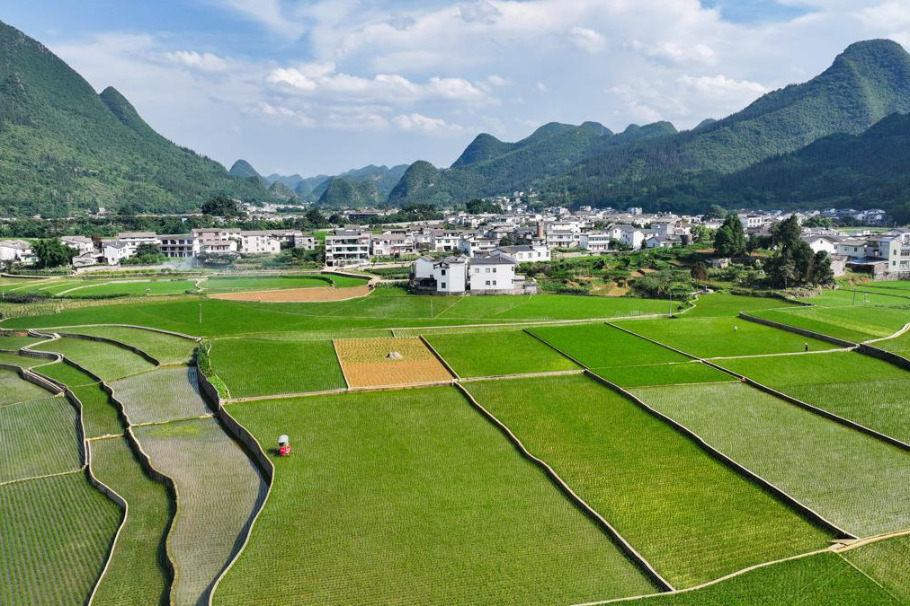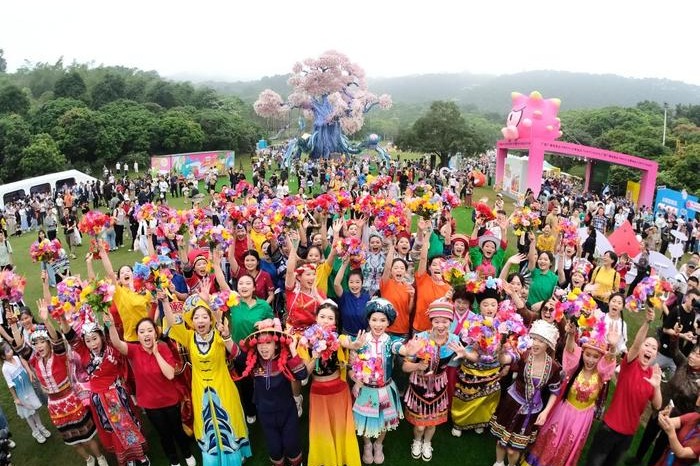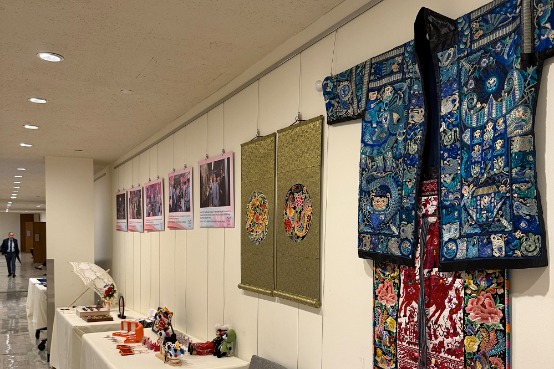Company makes strides in biodegradable plastic

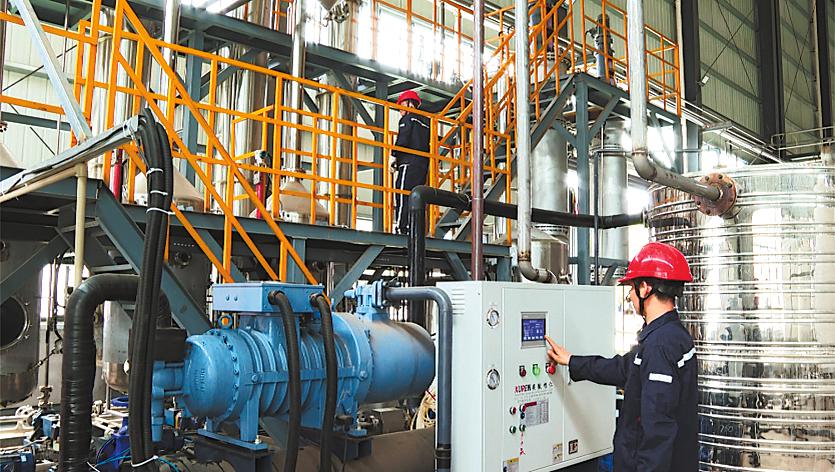
The world's first biodegradable plastic production line using reeds as raw material was recently put into operation at the Hubei Shouding Industrial Co in Shishou, Hubei province. The company is a subsidiary of Shanghai Hanhe Advanced Biomaterials Technology.
This internationally pioneering production technology independently developed by Hanhe has filled the gap in the field of non-grain bioplastic manufacturing.
"Traditional plastic production uses petroleum as raw material, which is non-degradable, causes environmental pollution and even endangers human health," said Liu Chang, an engineer responsible for technical research and development at Hanhe. "Biodegradable bioplastics using food such as corn as raw materials can be costly and has limited applications."
According to Liu, their straw bioplastics have significantly lower prices than starch-based bioplastics, and after large-scale production, the prices will even be lower than petrochemical plastics. "Our bioplastics can completely degrade into carbon dioxide and water, effectively solving the problem of white pollution and ultimately replacing petrochemical plastic products," Liu said.
The company also extracts high-quality lignin from reeds to synthesize bio-based resins used in manufacturing carbon fiber composites, which can be applied in high-end manufacturing fields such as aerospace, rail transportation and new energy equipment. "There is rapid growth in global demand for carbon fiber composites. However, as domestically produced epoxy resins lack certain critical features, we've had to rely on importing many high-end products from abroad," said Sang Tao, founder of Hanhe. "Our company's bio-based epoxy resins can solve the problem and have strong market competitiveness, receiving high industry recognition."
In 2014, Sang founded Hanhe, China's first non-grain raw material synthetic bio-manufacturing company, which initiated the industrial research and original innovation of the process.
After a decade of technological research and industrial validation, Hanhe has overcome the technical challenges in the bio-refining field. With the establishment of an original technology and equipment system, the company has achieved the localization of the entire production line with reduced overall cost, ensuring the profit margin of the bio-refining industry.
As one of the first leading industrial talents in Wuhan East Lake High-tech Development Zone, Sang has established a research and development center in the Wuhan National Biotechnology Industry Base and has obtained more than 50 invention patents.
"The bio-manufacturing industry using reeds as raw materials not only creates substantial economic value but also holds vital importance for the implementation of the 'dual-carbon' strategy," said Sang. "It is estimated that the 1,000-metric-ton biomass refining plant put into operation by Shouding can help reduce carbon dioxide emissions by more than 300,000 tons annually, equivalent to cutting over 120,000 tons of standard coal use."
Furthermore, he said, the production demands a substantial amount of reed resources, which will in return drive reed planting in Shishou and even the entire Dongting Lake area, helping promote wetland ecological restoration and forming a win-win model for economic development and ecological protection.
It will also provide experiences and examples for the transformation and development of the Yangtze River Economic Belt, he added.
Shishou, located in the south of Hubei province, boasts nearly 2,000 hectares of reed marshes. In recent years, three enterprises for comprehensive development and utilization of reed resources have been introduced to the city.
Taking reeds as raw materials, Hubei Changyue Food Co processes green food delicacies, Xianhe Paper Industry Co produces cultural paper and other high-end paper products, while Shouding develops and produces advanced environmentally friendly materials such as bioplastics.
The city's reed industry has been upgraded in recent years with constantly growing product added value, achieving high-quality development for the economy. "China produces over 800 million tons of crop straw annually. If one-tenth of that can be utilized as raw materials for bio-manufacturing, it can generate over 10 million tons of disposable plastic production capacity nationwide, forming a market worth hundreds of billions of yuan," Sang said.
"In grain-production areas abundant in straw resources, we can construct bio-refining plants with capacities exceeding 100,000 tons."
Along with the construction of high-standard farmland, the company can gradually establish an efficient market operation model for straw collection, storage and transportation. By closely integrating modern agriculture and bio-manufacturing industries, a new type of rural economy can be developed, which ensures food security and enhances rural revitalization, Sang said.
Contact the writers at zhouhuiying@chinadaily.com.cn
- Satellite boosts early disaster warnings
- Company makes strides in biodegradable plastic
- Ningxia villagers say goodbye to sooty homes, hello to clean, green houses
- Mock trial, Yangtze exhibition help mark cultural heritage day
- China helps 'empower' developing nations
- Separatist acts can't stop civil exchanges
















